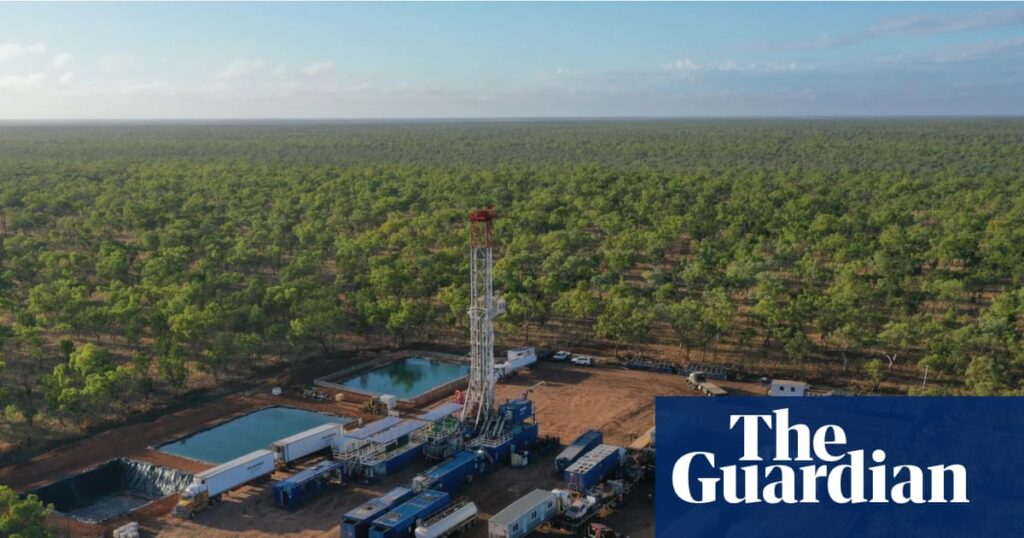
State governments in Australia could soon receive expanded powers to make decisions on fossil fuel developments, a move that has sparked “shock and anger” among conservation organizations. This proposal is part of the Albanese government’s planned overhaul of the Environment Protection and Biodiversity Conservation (EPBC) Act, which is set to be introduced in parliament later this week.
According to extracts of the legislation seen by Guardian Australia, the proposed changes would allow state and territory governments with federal accreditation to decide on large coal mining and unconventional gas projects impacting groundwater reserves or waterways. This shift in responsibility has raised concerns among environmental groups about the potential weakening of nature protection laws.
Historical Context and Legislative Background
The federal government has held explicit responsibility for decisions on fossil fuel developments affecting water resources since 2013, following the introduction of the “water trigger” by the Gillard Labor government. This legislative measure was enacted at the behest of independent MP Tony Windsor to ensure federal oversight of projects with significant environmental impacts.
However, the proposed amendments to the EPBC Act have drawn criticism from 13 environmental organizations, including those based in Darwin, central Australia, the Kimberley, and far north Queensland. These groups argue that the changes could lead to decisions being made by jurisdictions with weaker conservation laws or inadequate lobbying regulations, such as Queensland and the Northern Territory.
Community and Environmental Concerns
The Lock the Gate Alliance’s national coordinator, Carmel Flint, expressed concerns that the proposed “wholesale handback of environmental decision-making to state governments” could result in rural communities, farmers, and traditional owners being “railroaded by corporate giants.” Flint criticized the lack of public consultation, stating that the changes were introduced “without public consultation, even as big corporations have been in close discussions with the federal government for months.”
Dave Copeman, director of the Queensland Conservation Council, highlighted the importance of federal accountability under the EPBC Act for successful environmental campaigns. He cited recent actions by the Queensland government exempting planning decisions on Olympic venues from environmental and cultural heritage laws as evidence of the risks involved in devolving decision-making powers.
Government’s Stance and Legislative Details
The Albanese government contends that the proposed overhaul of the EPBC Act is necessary to address criticisms of the law’s inefficacy in protecting nature and the lengthy delays in approval decisions. Environment Minister Watt has promised an accreditation process for states and territories, along with the introduction of consistent national environment standards to evaluate proposals.
Watt defended the new legislation as “long overdue” and aimed at improving federal environmental law. He pointed out that the changes to reduce duplication in development assessments between federal and state processes were recommended by the former consumer watchdog Graeme Samuel in his 2020 review of the EPBC Act and supported by many environmental organizations.
“I would encourage those groups [critical of the legislation] to read the full bill when it is introduced into the parliament,” Watt said.
The draft legislation includes provisions for exceptions to conservation zones, sometimes referred to as “no go zones,” where development is typically prohibited. It also grants the environment minister the authority to approve projects that contradict nature laws if deemed in the “national interest.”
Political Dynamics and Future Implications
The introduction of the legislation to Labor MPs on Tuesday revealed that the minister prefers not to alter the proposed legislation to ensure its passage through parliament. However, the Coalition and Greens are being lobbied by business interests and environmental groups.
Greens leader Larissa Waters criticized the proposed law as being “written for big business” and expressed her party’s willingness to negotiate with the government for environment laws that effectively protect nature and community rights. She emphasized the need for laws that do not “fast-track” coal, gas, and logging projects without proper scrutiny.
As the Albanese government prepares to introduce the revised EPBC Act, the debate over state versus federal control of environmental decision-making continues to intensify. The outcome of this legislative battle could have significant implications for Australia’s environmental policies and its approach to managing natural resources.






